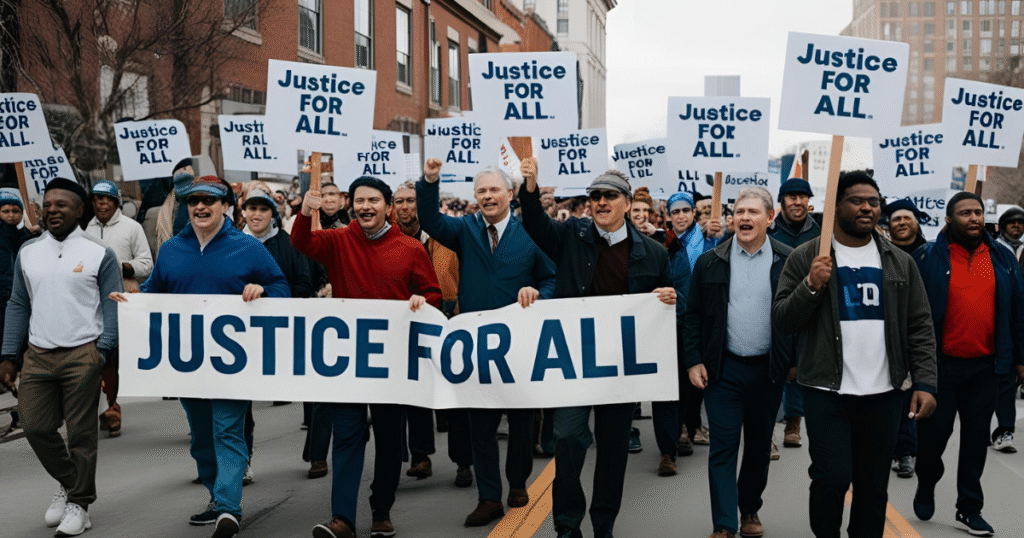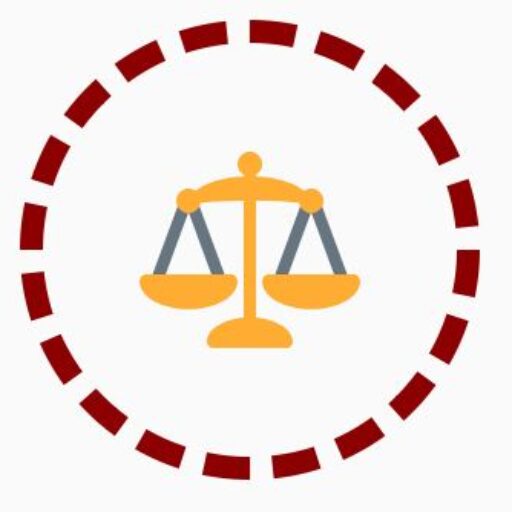Criminal law isn’t just for lawyers, judges, or crime show characters — it’s a part of everyone’s life. Whether you’re a student, a parent, a professional, or a retiree, understanding the basics of criminal law enables you to protect your rights, support your community, and deal with unexpected situations. This guide breaks down complex legal concepts into simple, understandable terms. Let’s seek justice together!

What is Criminal Law?
Criminal law deals with actions that break the rules of society and can harm people, property, or public safety. These acts are called “crimes,” and they can range from theft and assault to murder and fraud.
Criminal law has two main goals:
- Punish wrongdoers
- Protect society
In criminal cases, it’s the responsibility of the government—usually represented by a prosecutor—to formally accuse and pursue charges against a person suspected of committing a crime. This person is called the defendant.
Key Goals of Criminal Law:
- Protect Society: Prevent harm to people and property.
- Punish Wrongdoers: Ensure accountability for illegal actions.
- Rehabilitate Offenders: Help criminals reintegrate into society.
- Deter Future Crimes: Discourage people from breaking the law.
Why Should You Understand Criminal Law?
You don’t have to be a lawyer to benefit from knowing the basics of criminal law. Here’s why it matters:
- Know your rights if you’re ever stopped or questioned by police.
- Understand the legal process if you or someone you know is involved in a case.
- Be an informed citizen and contribute to discussions on justice and legal reform.
Types of Crimes Explained
Crimes are generally divided into three main categories:
1. Felonies
These are the most serious crimes. Examples include:
- Murder
- Rape
- Kidnapping
- Armed robbery
Punishment: Typically more than one year in prison, and in some cases, life imprisonment or even the death penalty (in some jurisdictions).
2. Misdemeanors
Less severe than felonies. Examples include:
- Shoplifting
- Simple assault
- Drunk driving (first offense)
Punishment: Usually less than a year in jail, fines, community service, or probation.
3. Infractions
Also known as violations or petty offenses. Examples:
- Speeding tickets
- Littering
- Jaywalking
Punishment: Fines, but usually no jail time.
The Criminal Process: From Arrest to Judgment
Have you ever wondered what happens after an arrest by the police? Here’s a step-by-step description:
- Investigation: The police gather evidence (witness statements, CCTV footage, etc.).
- Arrest: If there’s enough evidence, the suspect is taken into custody.
- Charging: The prosecutor decides whether to file formal charges.
- Arraignment: The accused appears in court, hears the charges, and pleads (guilty/not guilty).
- Pre-trial: Both sides share evidence; plea bargains may be negotiated.
- Trial: A jury or judge evaluates the evidence and makes a verdict.
- Punishment: If found guilty, the judge imposes a penalty (e.g., prison, community service).
- Appeal: The convicted person can challenge the verdict in a higher court.
Your Legal Rights in a Criminal Case
Everyone accused of a crime is guaranteed certain rights under the law. These rights protect individuals from unfair treatment.
- Right to remain silent: You don’t have to answer police questions.
- Right to an attorney: If you can’t afford one, the court provides a public defender.
- Right to a fair trial: Every person has the right to be heard in court and judged fairly based on evidence.
- Right to be informed of charges: You must know what you’re being accused of.
- Protection from being tried twice: Once you’re found not guilty, you can’t be prosecuted again for the same crime.
- Protection against cruel and unusual punishment: Sentences must be fair and humane.

Common crimes explained
Crimes fall into categories based on severity:
- Violent crimes: Causing bodily harm (e.g., murder, assault, robbery).
- Property crimes: Causing damage/theft (e.g., burglary, arson).
- White-collar crimes: Nonviolent, financially motivated (e.g., fraud, embezzlement).
- Drug crimes: Possession, trafficking, or manufacturing of illegal substances.
- Cybercrimes: Hacking, identity theft, online harassment.
Example: Shoplifting (property crime) can lead to fines or probation, while armed robbery (violent crime) can result in years spent in prison.
Common Defenses in Criminal Cases
Sometimes, people are wrongly accused or have valid reasons for their actions.
Here are some common legal defenses:
- Alibi: You can prove that you were in another place when the crime took place.
- Self-defense: You were protecting yourself from harm.
- Insanity: You were mentally incapable of understanding your actions.
- Lack of intent: You did not knowingly or purposefully commit the crime.
- Entrapment: Law enforcement tricked you into committing a crime.
A defense attorney helps decide the best strategy based on the facts of the case.
How to Seek Justice: A Roadmap
Whether you’re a victim, witness, or concerned citizen, here’s how to take action:
- Report the Crime: Contact local police or use anonymous tip lines.
- Cooperate with Law Enforcement: Provide honest details without speculation.
- Hire a Lawyer: For serious accusations, legal counsel is crucial.
- Stay Informed: Attend court hearings if you’re a victim or witness.
- Support Community Programs: Volunteer with organizations that prevent crime or aid victims.
Pro Tip: Many communities have victim compensation programs to cover medical bills or lost wages.
When Should You Contact a Criminal Defense Lawyer?
You should talk to a lawyer if:
- You’ve been arrested or charged with a crime
- Police want to question you
- You’re called to testify in a criminal case
- Your legal rights are violated
A lawyer can guide you, protect your rights, and help reduce penalties or even get charges dropped.
Criminal Law vs. Civil Law: What’s the Difference?
People often mix up criminal and civil law. Here are some points to make:
- Criminal law: Focuses on actions that harm society, such as theft, assault, or fraud, and seeks to hold offenders accountable. The government prosecutes the accused, and penalties include prison sentences, fines, or probation.
- Civil law: Resolves disputes between individuals/organizations (e.g., contracts, property issues). Penalties usually involve financial compensation.

Example: If someone steals your bike, criminal law punishes the thief. If you sue them to pay for the bike, that’s civil law.
Conclusion: Justice Begins with Knowledge
Understanding criminal law isn’t about becoming a legal expert—it’s about knowing enough to protect yourself and others. By staying informed, asking questions, and advocating for fairness, we all contribute to a just society.
Q: Can I represent myself in a criminal trial?
A: Yes (“pro se”), but it’s risky. Lawyers understand courtroom procedures and evidence rules.
Q: What’s the difference between a misdemeanor and a felony?
A: Misdemeanors (e.g., petty theft) carry lighter penalties (<1 year in jail). Felonies (e.g., murder) lead to longer sentences.
Q: How can I find legal help if I can’t afford it?
A: Contact your local legal aid office or public defender’s office.

